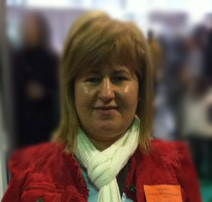“To be or not to be – that is the question” is a quote of one of Shakespeare’s most popular plays Hamlet. It will sound in 32 languages in the Small Basilica in Plovdiv on occasion of the International Mother Language Day marked on February 21. The works of the English dramatist were chosen for this event, because in 2019 we mark his birth 455th anniversary. The quotation will sound in original, as well as in Bulgarian, Turkish, Armenian, Hebrew, Roma, Russian, Ukrainian, French, Chinese, German, Italian, Spanish, Greek, Czech, Polish, Serbian, Albanian, Swedish, Arab, Kurdish, Moldavian, Persian, Japanese, Mongolian and Azerbaijani. The programme also envisages presentation of countries which have representatives in the ancient city of Plovdiv, including Armenians, Jews, Greeks, Turks, Roma, as well as international student from all continents who chose to study at the universities in Plovdiv. They will represent their home countries with songs, dance, poetry or various customs. The Bulgarian-Turkish Literature Club in Plovdiv is an organizer of the event. Why it is important to mark the International Mother Language Day and what is the history of the chosen date February 21? The member of the board of directors of the Bulgarian-Turkish Literature Club Mrs. Shenar Bahar told Radio Bulgaria details:
 February 21 was declared to be the International Mother Language Day at the UNESCO General Conference on November 17, 1999. It has been marked throughout the world since 2000 in order to encourage multilinguism and cultural diversity. The date was not chosen accidentally. It commemorates the killing of four students on February 21, 1952 in Daka, now the capital of Bangladesh. The students who campaigned to officially use their mother language, Bengali, were killed by Police officers.
February 21 was declared to be the International Mother Language Day at the UNESCO General Conference on November 17, 1999. It has been marked throughout the world since 2000 in order to encourage multilinguism and cultural diversity. The date was not chosen accidentally. It commemorates the killing of four students on February 21, 1952 in Daka, now the capital of Bangladesh. The students who campaigned to officially use their mother language, Bengali, were killed by Police officers.
The protests of the Bengalese yielded results in 1956, when the Bengali language received an official status by the government.
Each year there are different themes to celebrate the International Mother Language Day. The motto of this year’s edition is Indigenous Languages as Factor in Development, Peace and Reconciliation. Its purpose is to emphasize the role of all languages in the formation and the preservation of the cultural identity of the nations.
In this sense it is quite natural to look to the city of Plovdiv not only because it was named European Capital of Culture in 2019, but because of the millennial coexistence of many different ethnic groups and cultures which left a permanent mark on the culture, the spirit and the lifestyle of the ancient city that has been existing since the 4th century BC. The celebrations will begin with the poem The Bulgarian language of renowned Bulgarian writer, poet and dramatist Ivan Vazov. The poem was not chosen by accident, because the Patriarch of the Bulgarian Literature wrote it in order to refute the suggestion that the Bulgarian language existing at the end of the 19th century that the Bulgarian language is rough and tuneless. Today over 6,000 languages are spoken worldwide. 24 languages were declared official within the frameworks of the European Union. It is interesting to note that September 26 was declared European Day of Languages at the initiative of the Council of Europe. One of the goals of this initiative which has been held since 2002 is to make the European citizens study more languages regardless of their profession.
English version: Kostadin Atanasov
The Bulgarian Embassy hosted the second concert of the 17th season of the Bulgarian Music Society in Washington. On 14 November, guests enjoyed a unique show by two world-class artists, both originally from Bulgaria: Desi Jordanoff, a folk dance master,..
Generation Z students (born 1995–2012) are widely using artificial intelligence in their learning, with teachers reporting that more than 85% complete homework and study with the help of digital assistants. Children tend to see AI as a partner..
This year, Christmas has "arrived" in Sofia as early as November with the aroma of mulled wine, cinnamon and festive magic. Radio Bulgaria recommends that you visit some Christmas spots in the Bulgarian capital city: For those most impatient to..

+359 2 9336 661
